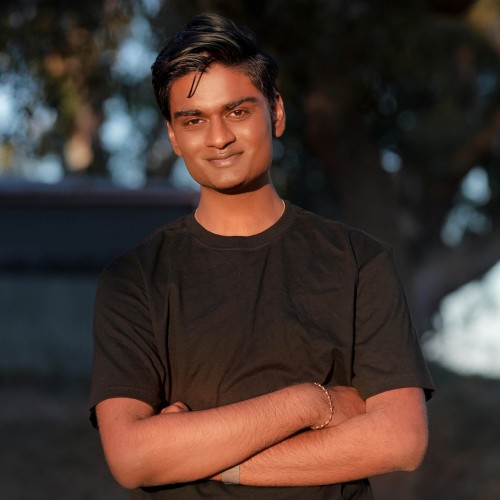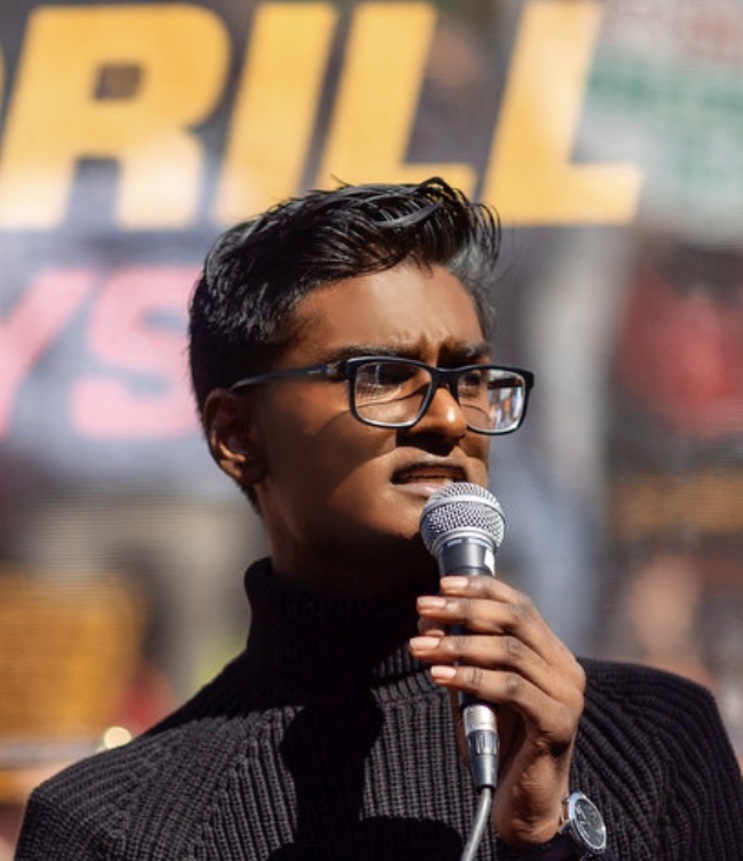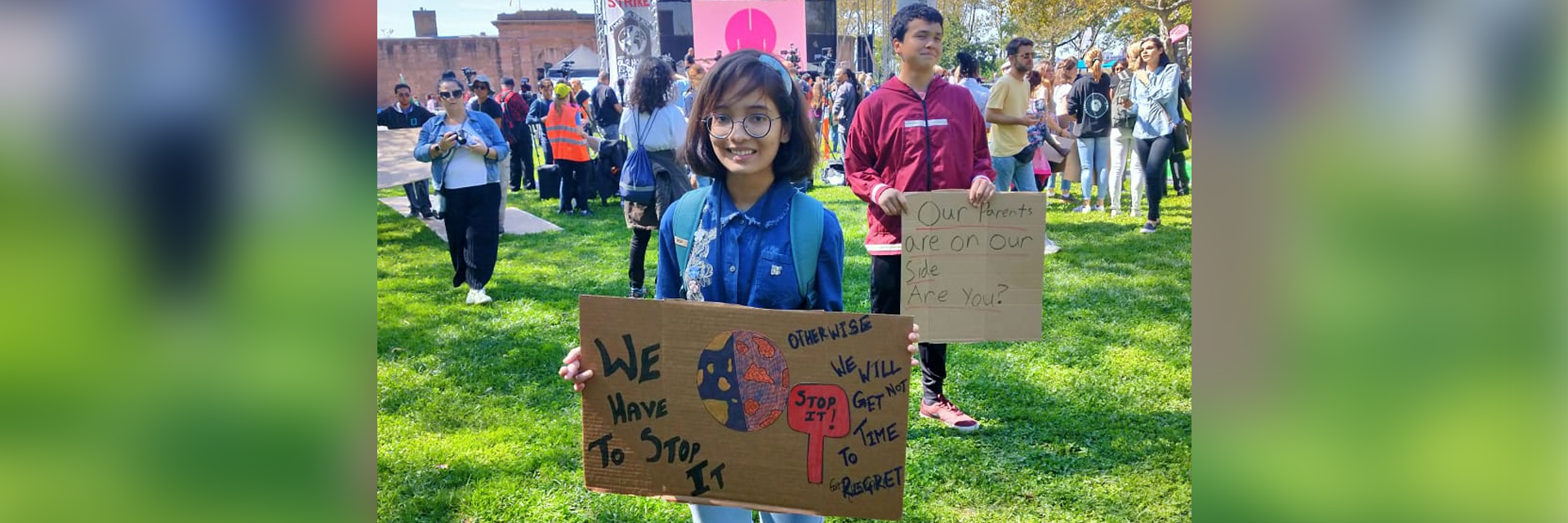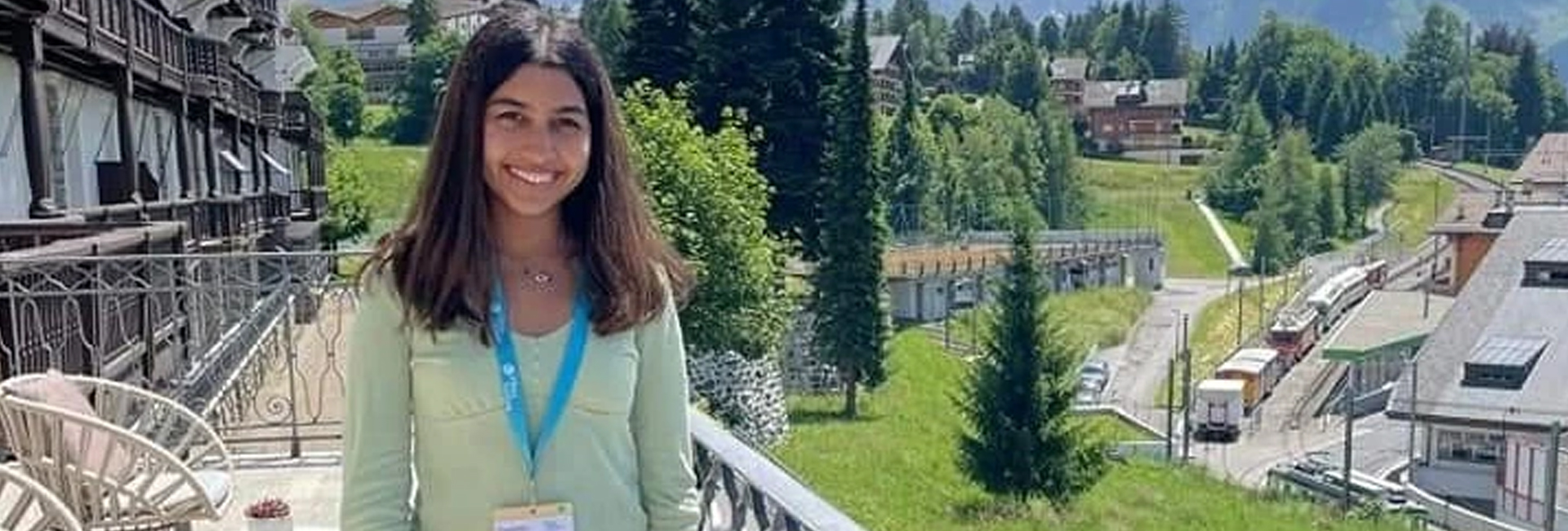(October 11, 2023) “My activism doesn’t come as a choice. My activism doesn’t come as a hobby. It’s a survival tool for my community,” says Kevin J Patel, a Los Angeles-based climate activist, who is the founder of OneUpAction International, an organisation empowering marginalised youth by providing them with the resources they need to be changemakers. Being one of the youth voices on the climate crisis, Kevin currently serves as a 2020 National Geographic Young Explorer. It was at the age of 12 that a health issue led Kevin to become aware of the environmental damage caused by the many oil refineries in the surrounding area. He is one of the two million California residents who live within 2,500 feet of an operational oil and gas well and are prone to health issues.

Born to immigrant parents who moved to the US in search of better opportunities, Kevin grew up in a space where they grew their own food. However, he lived in a community in South Central Los Angeles where food scarcity was common, and it was in his first semester of sixth grade that he became aware of the issue. “I realized my community wasn’t getting access to healthier foods; I really wanted to do something about it. I started teaching my peers to grow food. Many did not know that food comes from farms and they can grow their own foods,” he said in an interview.
However, things amplified in the second semester of his sixth grade when one day sitting in his classroom, he felt a sudden chest pain. He was fit, played sports, and had no high blood pressure, but ended up being diagnosed with arrhythmia, a condition in which the heart beats at an irregular rhythm. Confused, he started looking for answers as to why this might have happened to him and he found the answer in the location he lived. “South-Central Los Angeles was classified as a ‘sacrifice zone’ — places where residents, often low-income and/or people of colour, live close to freeways, factories, and oil wells. That’s where environmental inaction and damage have resulted in arrhythmia-stoking levels of smog. So, I started protesting. I led marches, petitioned government officials, and demanded climate justice from anyone who would listen,” he said.


While getting actively involved in activism, Kevin didn’t see many people who looked like him, especially in the youth climate movement. In 2018, more than 85 percent of staffers in over 2000 environmental nonprofits were white. This nudged him to start OneUpAction International in 2019 to create a platform for young individuals who were BIPOC (Black, Indigenous, People of Color). “I consider myself an intersectional climate activist, and one of the millions of people across the world who are already victims of the climate crisis. I didn’t see a home for people like myself.”
Over the years, OneUpAction translated into more than just giving voice to BIPOC, it turned into an organisation that supports and empowers marginalised youth to become changemakers, and to tackle the climate crisis within their local communities for a regenerative future. “Now we’re an organization that is helping young individuals across the globe implement and accelerate solutions within their communities.”
Kevin, who is pursuing Political Science at Loyola Marymount University, has over the years collaborated with the community to create a one-of-its-kind Youth Climate Commission in LA County to amplify youth voices. “The power of young people is crucially needed. I also think we just need to intergenerationally work together to really make sure that we’re solving these issues.”
The young climate activist is into hiking and photography, and is keen to get more young people equipped with the resources like monetary aid, membership and all “to implement solutions and drive action within their communities.” “We need more young people at the table, and this is where OneUpAction is currently focused. Youth will drive the change our planet needs.”




